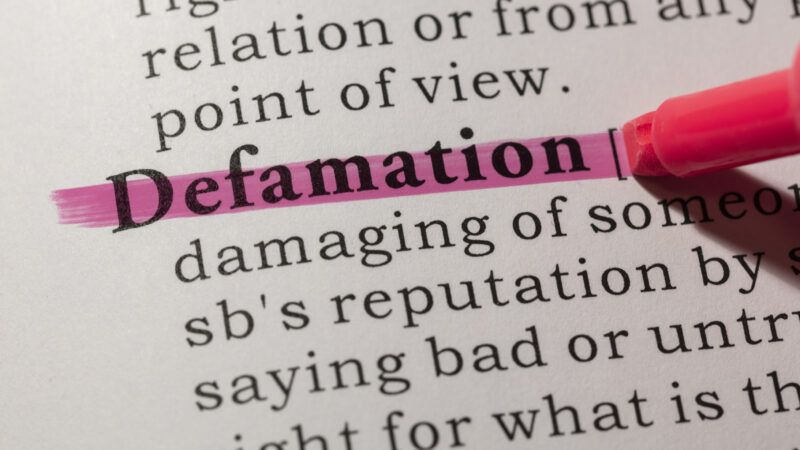Town Official Lies, Files Lawsuit When Someone Calls Him a Liar
A town attorney threatened a local activist with a frivolous lawsuit so she would stop criticizing him. She complied, and he sued her anyway.

The village of Mount Pleasant, Wisconsin, is still dealing with the fallout of the infamous Foxconn deal the state struck in 2017. Former Governor Scott Walker promised the Taiwan-based tech giant $3 billion in state subsidies in exchange for a state-of-the-art factory to be built in Mount Pleasant, and said that the deal would generate 13,000 high-paying jobs.
Four years later, the factory was nowhere near completion, and the company had created merely 1,400 jobs. The state rescinded most of the subsidies, but the Mount Pleasant Village Board, the local governing body, had already authorized bulldozing dozens of homes, including via eminent domain, designating more than four square miles "blighted" to make the land even easier to seize from private owners. It also took on hundreds of millions in debt, leading to the town's credit rating being downgraded.
So when members of that same board, so soon after jeopardizing the town's future, voted to extend their own terms in office from two years to three years, residents had some choice words for city government. Now, one of them is being sued over it.
Kelly Gallaher is a community activist who runs the local watchdog group, A Better Mt. Pleasant (ABMP). Her activism began nearly a decade ago, as the board tried to do away with public comment at public meetings. When the board announced it had voted to extend its terms by 50 percent, Gallaher organized a signature drive. In just two weeks, she collected more than enough signatures to force the matter to a public vote.
In trying to sell the term extension to the public, Village Attorney Chris Smith told the Racine Journal Times that the idea was not new, and that the village board had discussed the extension as far back as 2018. But Gallaher routinely watches the board meetings, and knew that she had never heard it discussed before this year. After emailing Smith for records, he admitted that it was not discussed publicly until April 2021, in a meeting for which no audio or video was recorded. So on March 3, Gallaher emailed the paper about the interview, writing, "This is false. Smith lied to you." She also posted on the ABMP Facebook page that "the Village Attorney lied to The Journal Times" about the timeline.
That day, Smith demanded that Gallaher take down the Facebook post, or he would sue. Afraid of a lawsuit, Gallaher did take down the post, replacing it with a retraction which Smith had authored. Days later, on March 7, Smith sued Gallaher anyway.
In his defamation filing, Smith claimed "emotional distress" as a result of Gallaher's comments. He claims that her email and social media statements were "false" and "tend[ed] to harm plaintiff's reputation," and that she "consistently and publicly portray[s] Village officials and employees negatively" online. He also claimed that despite the fact that Gallaher had retracted her statement, she had not emailed the retraction to the Journal Times, citing this as further evidence that she had acted "intentionally and with express malice."
On Thursday, The Institute for Justice (IJ), a libertarian public interest law firm representing Gallaher, filed a motion to dismiss. The motion argues that Smith, as a public official, has to meet a higher burden of proof for defamation: "actual malice," that Gallaher either intentionally lied or showed "reckless disregard" for the truth.
But as James Knight, Law & Liberty Fellow at IJ and an attorney on the case, told Reason, "the evidence shows the exact opposite: She was careful to do her research, and she gave him the opportunity to correct her misunderstanding, if that's what he thought had happened." Further, when Gallaher told the newspaper that Smith had lied, she included the entire email thread of her interactions with him, specifically citing the difference between his claims to the paper, and his admission over email that the truth was different. (She similarly included a screenshot of the emails with her social media posts.)
Even if Smith were not a public figure, Knight said, this would still not be defamation: "What she said was simply a matter of opinion. What she said was her interpretation of his statement."
One of the most basic rights that Americans have is the right to criticize public officials. Accordingly, it is more difficult for a public official to prove defamation in cases where they are discussing public issues. As IJ's filing makes clear, Smith has little chance of prevailing against Gallaher at trial, and in fact the suit will likely even be dismissed before then. But as Knight told Reason, "His lawsuit wasn't meant to be won. It was meant to scare her into silence."


Show Comments (51)